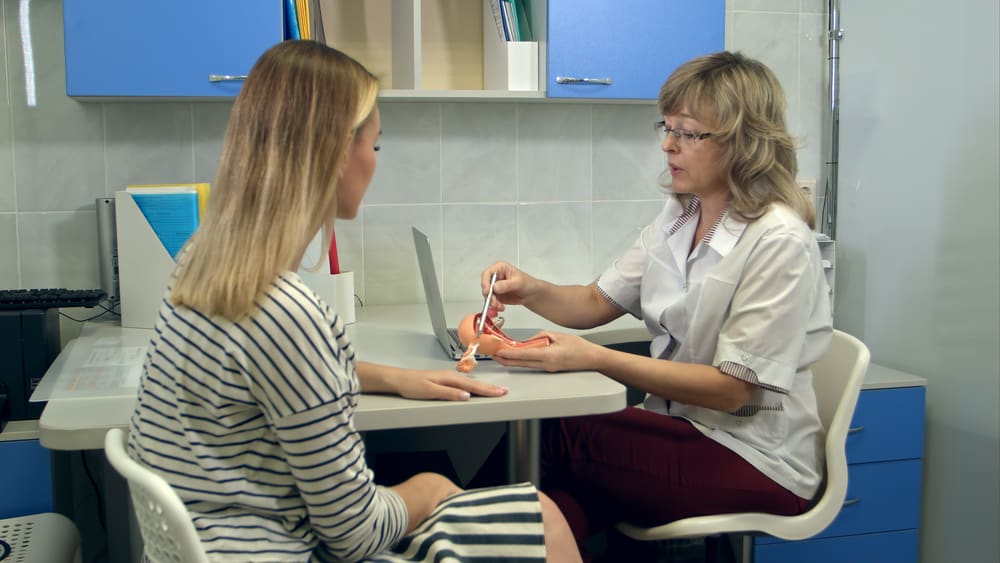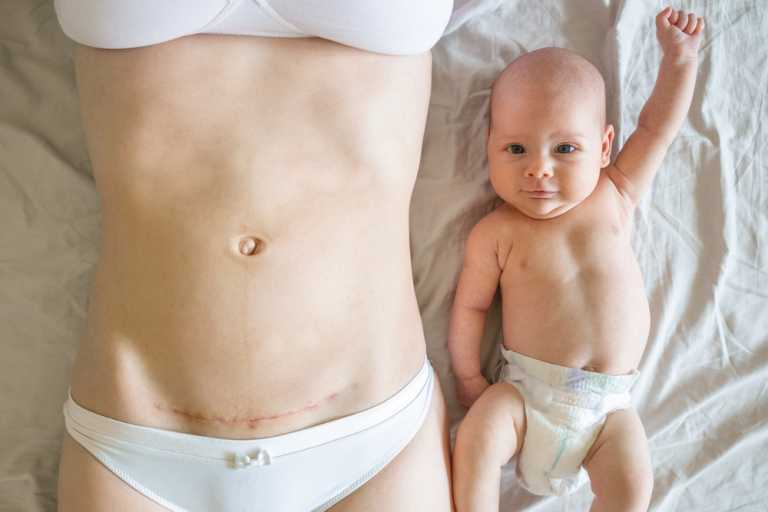If you’re absolutely sure you don’t want any more children, you might be considering sterilization during your cesarean. It’s a fantastic option, as it’s one of the most effective forms of contraception and has no impact on your hormones.
But, there are some side effects of tubal ligation after a c-section, and vasectomies are just as effective with fewer risks. So here’s what you need to know to make the right decision for you and your family.
What Are the Side Effects of a Tubal Ligation After a C-Section?
A tubal ligation on its own will cause abdominal pain and a sore incision. But if you’ve just had a c-section, you’ll be experiencing this anyway. So, why not get it all over with in one go?
The positives are:
- It won’t affect your recovery time.
- It’s unlikely to cause any extra side effects.
- It’ll only add 5 minutes to your cesarean.
But there are a few things that you should be aware of.
Future Ectopic Pregnancies
Tubal ligation is one of the most effective methods of contraception. It starts working immediately, and the chance of pregnancy is less than 1 in 200. But if you do fall pregnant, a tubal ligation will increase your risk of an ectopic pregnancy.
So, after having your tubes tied, it’s vital to take a pregnancy test if you miss a period. This will allow you to catch the pregnancy early and receive treatment if it’s ectopic.
Sterilization Regret
Research has shown that the rate of sterilization regret is much higher in women who have their tubes tied during their c-section. This is because convenience, pregnancy discomfort, and hormones can cloud the decision.
Regret is more likely if you:
- Are under 30.
- Have fewer than three children.
- Are choosing sterilization due to pressure from a spouse.
- Experience a life-changing event like a relationship breakup or the loss of a child.
Heavy Bleeding
As with any surgical procedure, there is a chance of heavy bleeding. But, this risk is no higher than it is for a c-section.
Infection
There is a small chance of infection occurring after a tubal ligation. But, again, the risk is similar to that of your c-section.
To avoid infection-related complications:
- Keep your wound clean.
- Avoid baths, bending, exercise, and sex for 6 weeks after your procedure.
- Report nausea, dizziness, large blood clots, spreading redness, and headaches to your doctor.
- Seek immediate medical attention if you develop a fever or foul-smelling discharge.
Chance of Success
Tubal ligations performed during c-sections have a slightly lower chance of success. This is because your fallopian tubes will be swollen due to pregnancy.
Tubal Ligation Side Effect Myths
Choosing extra surgery on top of your c-section can be daunting, especially as so many myths about the side effects are available online. So let’s ease some concerns.
Does Tubal Ligation Cause Post-tubal Ligation Syndrome?
There are some reports of women suffering menopause-like symptoms after having their tubes tied. These include:
- Hot flashes
- Heavy or missed periods
- Mood swings
- Depression
- Brain fog
- Fatigue
- Vaginal dryness
But there’s a heated debate within medical communities about whether Post-Tubal Ligation Syndrome exists.
Many doctors believe withdrawing from regular contraception is the true cause. Or that the contraception had been masking an underlying condition.
Does Tubal Ligation Increase Cancer Risk?
No tubal ligation does not increase endometrial or breast cancer risk. In fact, studies have shown it significantly reduces endometrial cancer rates and mortality.
Can Tubal Ligation Affect Breastfeeding?
If you need general anesthesia during surgery, it can affect breastfeeding success. This is because the medication can pass to your baby through your breast milk. This can make them sleepy and reluctant to feed.
But fortunately, tubal ligations don’t usually need general anesthesia. So, the risk is low.
Does Tubal Ligation Affect Periods?
Some women have reported changes in their menstrual cycles after undergoing tubal ligation. Fortunately, though, research has shown that tubal ligation has no effect on:
- Hormone levels
- Menstrual pain
- Amount of bleeding
- Period duration
The only effect proven by research is a slight increase in period irregularity. This can make it more difficult to track cycles and catch ectopic pregnancies.
Does Tubal Ligation Cause Hair Loss?
Good news, having your tubes tied will not affect your hair. But, most women will experience some normal postpartum shedding unrelated to the procedure.
If your hair loss becomes excessive, see your doctor. They may want to run some tests to check your iron, hormone, and cortisol levels.
Does Tubal Ligation Cause Weight Gain?
No, a tubal ligation will not cause weight gain as it has no impact on your hormone levels or appetite. Isn’t it nice that at least one pregnancy-related procedure won’t have you jumping up a dress size?
Will Tubal Ligation Affect Libido?
As a tubal ligation won’t affect your hormone levels, it won’t affect your sex drive either. This gives it an advantage over hormonal contraceptives.
Will a Tubal Ligation Increase the Risk of Hysterectomy?
Happily, research has shown that having your tubes tied doesn’t increase your chance of a future hysterectomy.
Will Tubal Ligation After a C-Section Affect the Baby?
No. Having your tubes tied after your cesarean will not harm your baby. It only takes an extra 5 minutes, and without complications, you’ll be able to keep them on your chest.
Does Tubal Ligation Hurt After a C-Section?
Having a tubal ligation after your c-section won’t cause you any extra pain. It’ll also heal faster than your cesarean, so it won’t add any time to your recovery.
Is Tubal Ligation Permanent?
A surgeon can attempt to reverse your tubal ligation, but the chances of success are low. For this reason, it’s considered a permanent contraceptive.
A Final Thought
Much of the bad press around tubal ligations after a cesarean has now been disproven. But it’s still a permanent procedure that carries risks.
Having your tubes tied after a c-section is definitely convenient. But the failure rate is higher than having a separate tubal ligation. It’s also a time when your hormones are running wild, and the discomfort of late pregnancy is fresh in your mind.
So, don’t rush into anything unless you’re absolutely sure. You can always book a quick laparoscopic sterilization at a later date. The recovery time is only 1 to 3 weeks, and the chance of success is higher.




